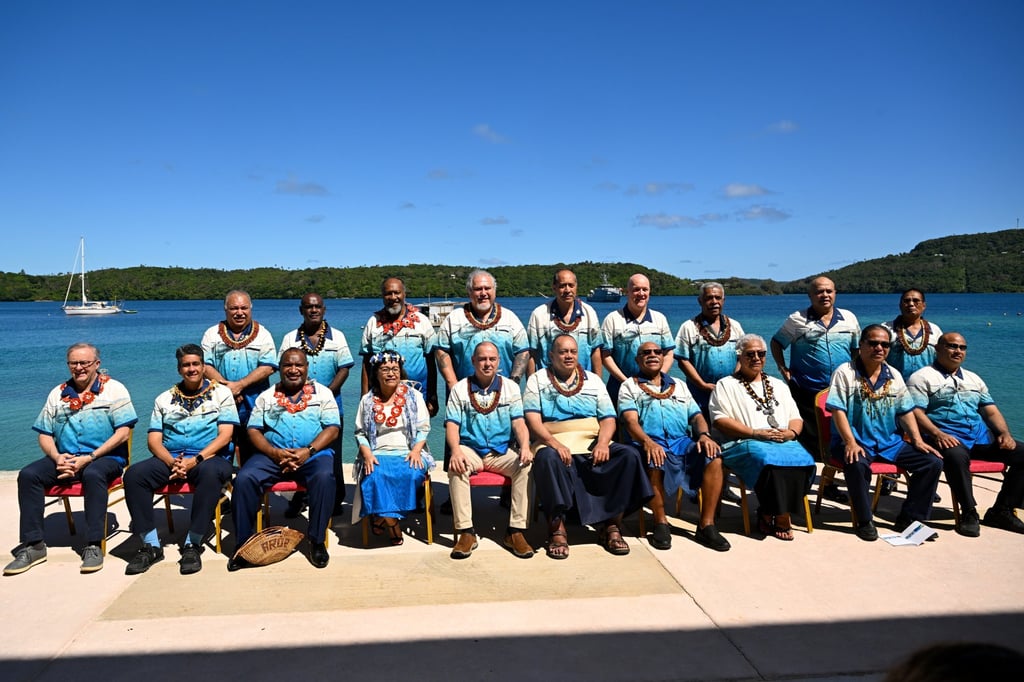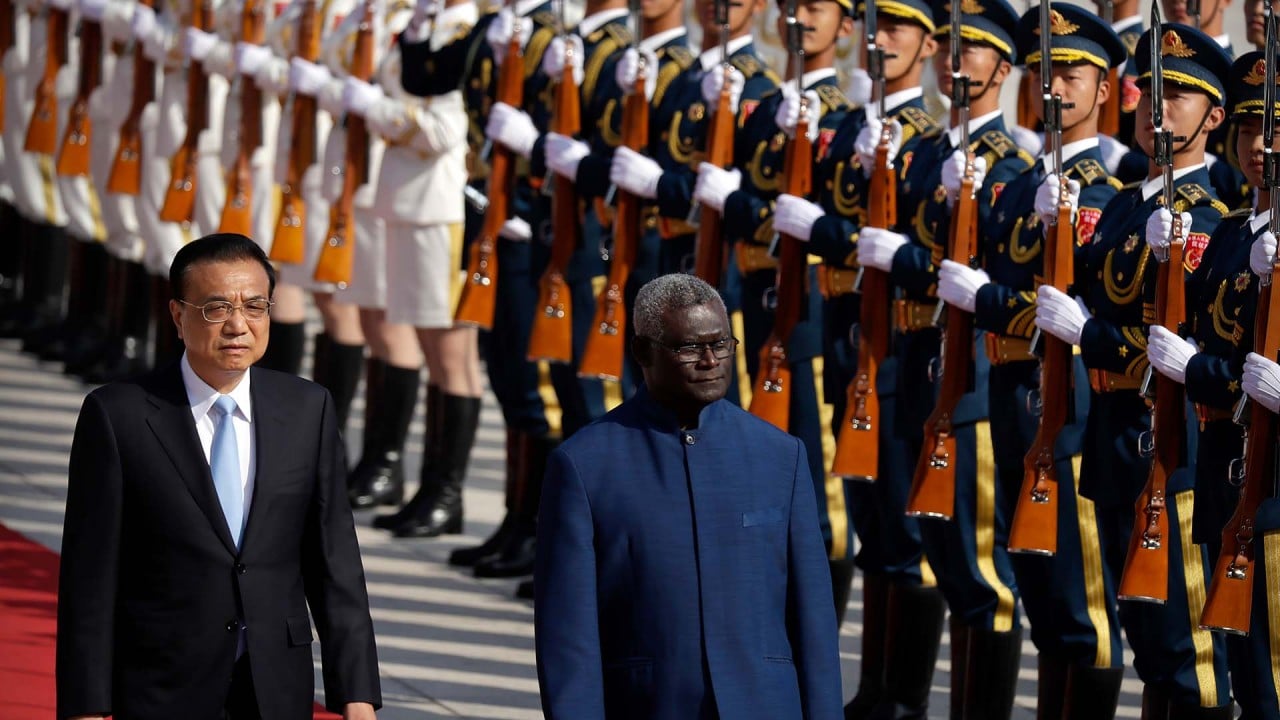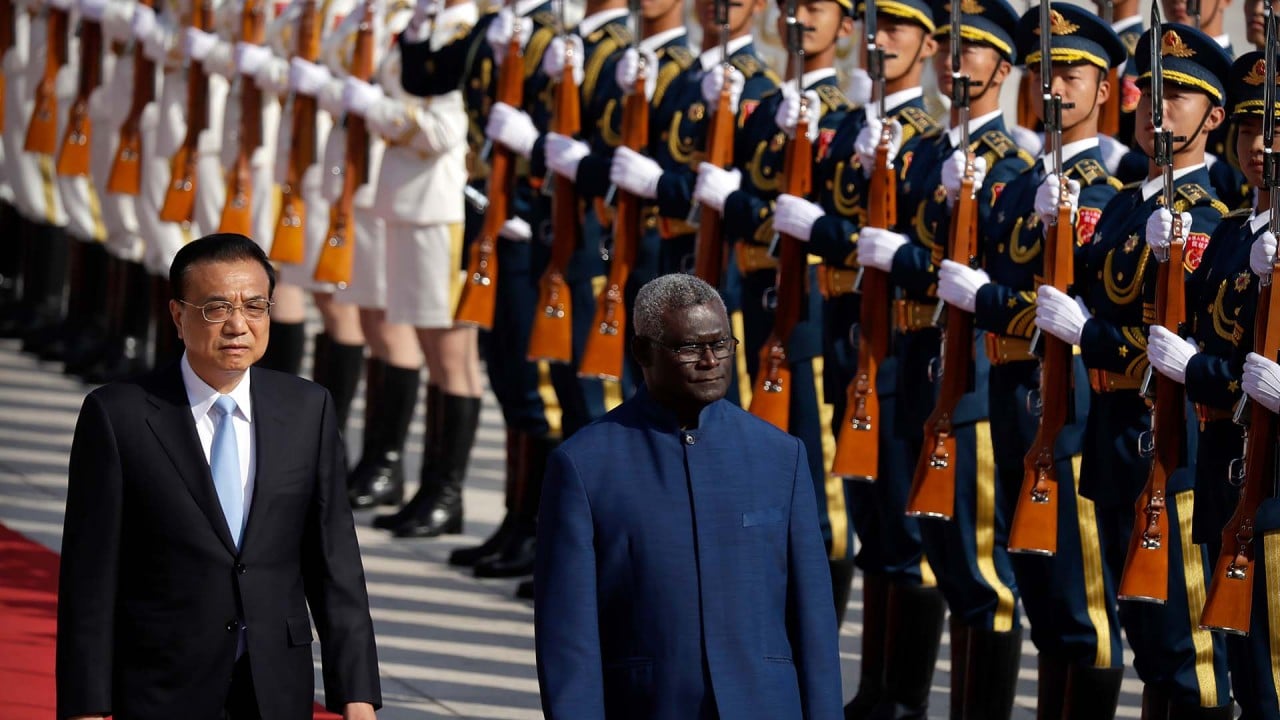Beijing has been restrained in response to Pacific island leaders backing Canberra’s regional policing plan – a move seen as a “diplomatic coup” for Australia as it tries to counter China’s security presence in the region.
Pacific island leaders endorsed the A$400 million (US$271 million) Pacific Policing Initiative at a summit in Tonga on Wednesday.
Under the plan, up to four training centres will be set up across the Pacific and a multinational crisis reaction force of around 200 officers will be established.

China’s foreign ministry did not comment on the specifics of the plan but on Thursday said Beijing supported “all parties to make joint efforts for the development and revitalisation of Pacific island countries”.
According to Melissa Conley Tyler, executive director of the Asia-Pacific Development, Diplomacy and Defence Dialogue, a foreign policy platform in Canberra, the plan is a collaborative effort to tackle regional security concerns, including an increase in drug trafficking and transnational crime.
“While Australia will provide most of the funding, Tonga’s prime minister announced it as a ‘Pacific-led, Pacific-owned’ initiative that reinforces the existing regional security architecture,” Conley Tyler said. “It builds on the Australian Federal Police’s long engagement in the region.”
She noted that the plan was designed by the Pacific Islands Chiefs of Police, a regional body that brings together police chiefs to exchange information and drive regional policing agreements.
It comes as Beijing has strengthened its strategic toehold in the region, including through a police cooperation pact signed in 2022 with the Solomon Islands – one of China’s most vocal supporters in the region.
In July, Solomon Islands Prime Minister Jeremiah Manele secured US$20 million in funds for his government during a visit to Beijing, while the leaders of Fiji and Vanuatu have also visited China this year.
According to Conley Tyler, Australia’s move is a “political win” for the Anthony Albanese government as it tries to “show that its approach of building relationships and positioning Australia as a partner of choice for Pacific islands has been successful”.
Elena Collinson, head of analysis at the University of Technology Sydney’s Australia-China Relations Institute, called it a “strategic accomplishment” for Canberra.
“Endorsement of the policing plan is a diplomatic coup for Canberra, symbolising as it does a seeming regional lean towards Australia as the preferred security partner, helping stave off the potential for a regional security agreement with China,” Collinson said.
“It is clear that balancing relations with Beijing remains an important consideration for a number of Pacific island nations,” she added, noting that some leaders – such as Vanuatu Prime Minister Charlot Salwai – had been “swift to emphasise” the plan should not be used to suit the “geostrategic interests” of their big partners.
Collinson said it was still in question whether the plan could be successfully embedded in regional architecture since some leaders remained hesitant about it.
Ties between Beijing and Canberra have thawed since Albanese was elected in 2022 and he has had several discussions with Chinese President Xi Jinping since then, leading to the removal of many trade restrictions.
In addition, Chinese Premier Li Qiang’s visit to Australia in June resulted in expanded cooperation on new energy vehicles, visa waivers for Australians and a pair of giant pandas.
Collinson said Australia’s policing pact with its neighbours was unlikely to have any major impact on bilateral ties.
“Beijing has been well aware of Australian efforts in the region and has proceeded with steps towards a tentative rapprochement while equipped with that knowledge,” she said.
“Indeed, Beijing’s response thus far has been fairly restrained.”
Conley Tyler said Beijing’s reaction had been “mild”. “Australia’s aims in the Pacific are very clear to Beijing and the existence of ongoing low-level friction is built into the stabilised relationship,” she added.
Edward Chan Sing-yue, a postdoctoral fellow in China studies at the Australian National University, said Pacific island states were generally welcoming of cooperation with both Beijing and Canberra.
“As they are small recipient states, they are not particularly interested in regional politics or Australia-China relations [and] tend to be more pragmatic,” he said.
“The initiative signifies Australia’s growing commitment to the South Pacific through security cooperation, rethinking its role as a dominant power in the region and what else it can do to enhance the relationship with South Pacific countries apart from regime building and foreign aid.”



